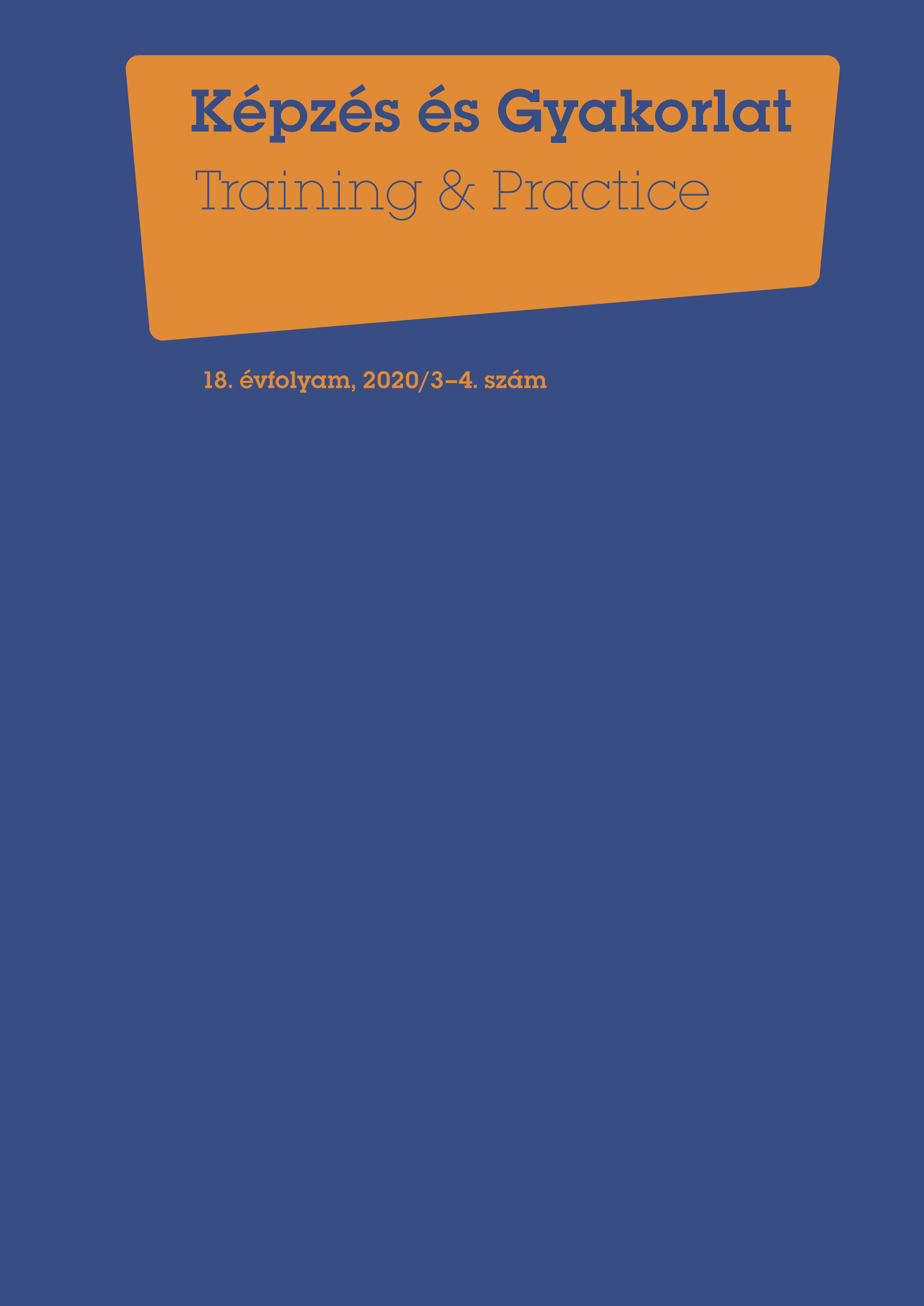A digitális oktatás tapasztalatai a COVID-19 járvány idején
DOI:
https://doi.org/10.17165/TP.2020.3-4.22Resumen
Az elmúlt évtizedekben az informatika térhódítása jelentősen átformálta a világunkat, és olyan lehetőségek nyíltak meg általa a hétköznapi életben, és az oktatásban egyaránt, melyeket korábban elképzelni sem tudtunk. Mindezt a 2020-as COVID-19 járvány miatt kialakult helyzetben a társadalom ki is tudta használni mind az online kapcsolattartás, mind az otthoni munka (Home Office), mind pedig a digitális oktatás keretein belül. Ám ezek a lehetőségek nem maguktól értetődőek, meg kell tanulnunk kihasználni őket. A túlzott ragaszkodás a megszokott megoldásokhoz és a hétköznapi értelemben vett bürokráciához felesleges többletmunkához és adminisztrációhoz vezethet. A digitális oktatás előnyeit és hátrányait is megtapasztalhatták idén az oktatási rendszer résztvevői, melynek tapasztalatait bölcsen felhasználva megkönnyíthető a hagyományos oktatás. Emiatt éreztem szükségesnek e kutatás elvégzését, melyben arra kerestem a választ, hogy a diákok hogyan élték meg ezt az új helyzetet, mely tárgyak oktatása ment gördülékenyen, valamint a használt szolgáltatások közül melyikeket érezték hasznosnak és melyeket kevésbé.
Referencias
AndroX (2020). Alkalmazások, melyek segítik a tantermen kívüli digitális oktatást és tanulást! – Így segítik a mobilszolgáltatók a tanárokat és diákokat! [online] https://www.androx.hu/2020/03/16/alkalmazasok-melyek-segitik-a-tantermen-kivuli-digitalis-oktatast/ [2020. szeptember 23.]
Dancsó, T. (2007). A Sulinet Digitális Tudásbázis tananyagainak felhasználása az oktatásban. Új Pedagógiai Szemle, 57. évf. 9. sz. pp. 128–143. [online] https://folyoiratok.oh.gov.hu/uj-pedagogiai-szemle/a-sulinet-digitalis-tudasbazis-tananyagainak-felhasznalasa-az-oktatasban [2020. szeptember 23.]
Dercsi, B. (2018). Tanulást segítő appok. Kidnews.hu: a gondolkodó tizenévesek magazinja, [online] https://kidsnews.hu/2018/10/tanulast-segito-appok/ [2020. szeptember 23.]
Erdélyi, K. (2009). Az informatika, mint szolgáltatás az oktatásban. [online] https://people.inf.elte.hu/szlavi/InfoDidact09/Manuscripts/EK.pdf [2020. szeptember 8.]
Hunya, M. (2008). Országos informatikai mérés: a pedagógusok válaszainak elemzése. Új Pedagógiai Szemle, 58. évf. 1. sz. pp. 69–100. [online] https://folyoiratok.oh.gov.hu/uj-pedagogiai-szemle/orszagos-informatikai-meres [2020. szeptember 23.]
Kramarski, B. és Liberman A. (2002). E-mail kommunikáció és metakognitív oktatás alkalmazása a matematikai problémamegoldás fejlesztésére. Új Pedagógiai Szemle, 53. évf. 7–8. sz. pp.99–105. [online] https://folyoiratok.oh.gov.hu/uj-pedagogiai-szemle/e-mail-kommunikacio-es-metakognitiv-oktatas-alkalmazasa-a-matematikai [2020. szeptember 23.]
Magyar Digitális Oktatásért Egyesület (2020). Alkalmazások, weboldalak távoktatáshoz pedagógusoknak. [online] https://mdoe.hu/digitalis-oktatas/alkalmazasok-weboldalak-tavoktatashoz-pedagogusoknak/ [2020. szeptember 23.]
Modra, I. (2002). Oktatás és internet. Új Pedagógiai Szemle, 52. évf. 9. sz. pp. 95–103. [online] https://folyoiratok.oh.gov.hu/uj-pedagogiai-szemle/oktatas-es-internet [2020. szeptember 23.]
Nádori, G. és Prievara, T. (2002). IKT módszertan: Kézikönyv az info-kommunikációs eszközök tanórai használatához. TanarBlog.hu [online] http://tanarblog.hu/attachments/3192_IKT_modszertan.pdf [2020. szeptember 25.]
Reindl, Gy. (2004). Az informatika tanítása és felhasználása a magyar oktatásban. Új Pedagógiai Szemle, 54. évf. 9. sz. pp. 116–120. [online] https://folyoiratok.oh.gov.hu/uj-pedagogiai-szemle/az-informatika-tanitasa-es-felhasznalasa-a-magyar-oktatasban [2020. szeptember 8.]
Szebedy, T. (2002). Az IKT szerepe az iskolai élet belső és külső kommunikációjában. Új Pedagógiai Szemle, 52. évf. 9. sz. pp. 104–113. [online] https://folyoiratok.oh.gov.hu/uj-pedagogiai-szemle/az-ikt-szerepe-az-iskolai-elet-belso-es-kulso-kommunikaciojaban [2020. szeptember 23.]
Descargas
Publicado
Número
Sección
Licencia
Derechos de autor 2020 Adorján Balázs

Esta obra está bajo una licencia internacional Creative Commons Atribución-NoComercial-SinDerivadas 4.0.












